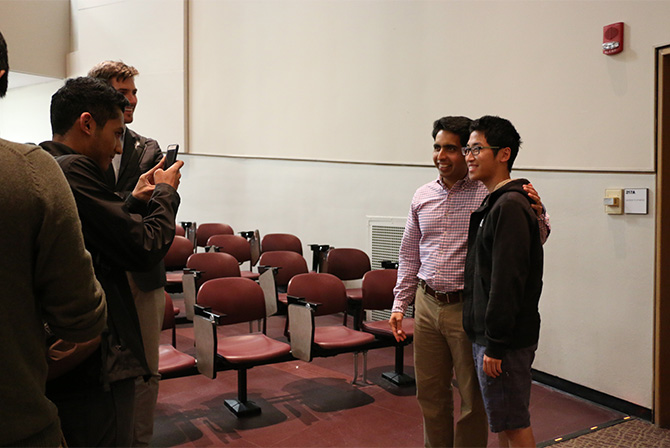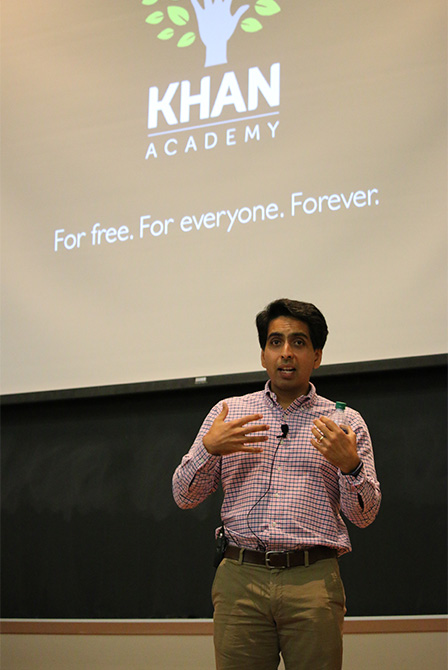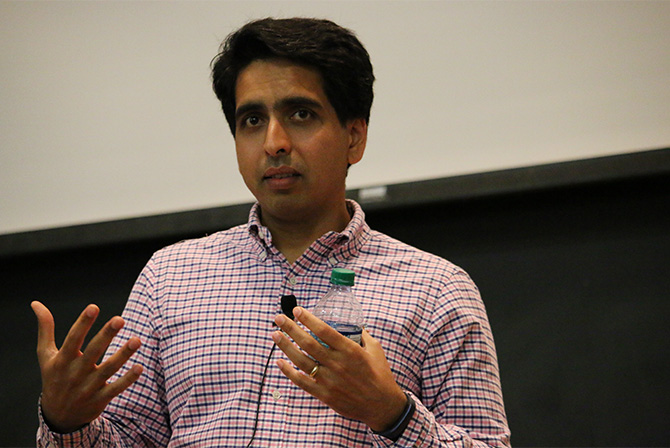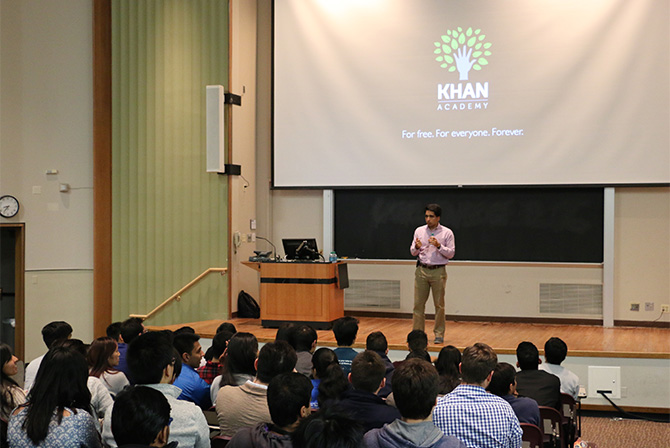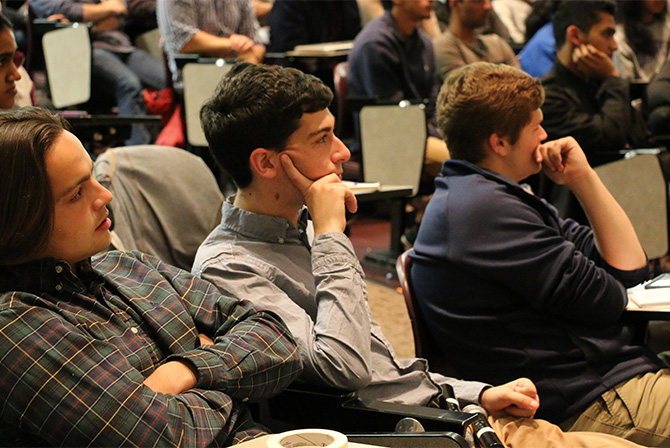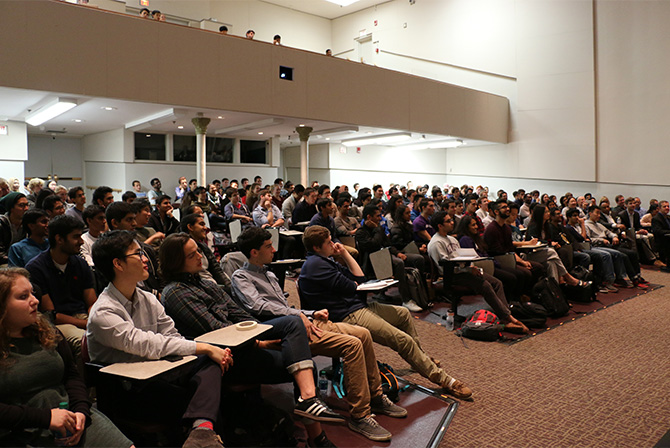When Salman Khan, the founder and CEO of Khan Academy, spoke at Northwestern on Wednesday night, his voice was instantly recognizable for many students in the crowd, invoking memories of high school study-sessions on binary logarithms and exponential functions.
Khan, who was invited to speak by the Contemporary Thought Speaker Series, spoke about his non-profit, which provides free online educational tools for any student with an internet connection.
Khan Academy is used in over 190 countries by 26 million registered students, but for Khan, there is still work to be done in order to live up to the Academy’s motto: “A free, world-class education for anyone, anywhere.”
Khan was in Chicago to coordinate a program he’s working on with Chicago Public Schools (CPS) called LearnStorm, which is scheduled to start in November.
The program is built around the concept of the growth mindset, encouraging students to learn through application, effort and failure.
"We think this will be an interesting way of adopting these ideas, focusing on mindset and personalized learning," Khan told NBN. "We don’t think classrooms will change tomorrow, but I think it’s happening a lot faster than people realize."
Officials from Hyatt Hotels Corporation, which is sponsoring LearnStorm, said that the program will be a nine-week competition between different CPS schools for the best rankings on Khan Academy’s online mathematics program. The program is intended to encourage “grit and perseverance and hustle,” according to Jeff Semenchuk, Hyatt’s chief innovation officer.
LearnStorm has already seen success in the San Francisco Bay Area, and Semenchuk said that they hope to expand the program to other cities in the U.S., and eventually around the world.
Making its resources globally available is important to Khan Academy. Khan said he would be going to India in December to look into how he can launch educational programs there.
"We’re going to try and launch an effort there and build and create the content that is relevant to that student on a device like a mobile phone," Khan said. "If you could show education minsters that there is a path for some small expenditure, and you can actually deliver education, then it creates a better argument for people to invest."
Their global outreach has public appeal. For Sarah Khan (no relation), a Weinberg sophomore, it demonstrated that “he wants to see our entire human race advance.”
Khan hopes to make personalized education available to everyone through Khan Academy. His mission began when he set out to help his cousin, Nadia, who was struggling in math. As more relatives asked for tutoring, he made his first videos and posted them on Youtube.
He began receiving comments and letters thanking him for helping strangers’ children understand math. One user said that “Khan Academy was the private tutor that my family could not afford.”
Since then, Khan has never stopped making videos.
Even on Wednesday night, as the last few people were leaving the auditorium, Khan was in the middle of a tutoring session of sorts. Semenchuk approached Khan and asked him to explain to him, one more time, a physics concept that a younger relative was struggling with. Without thinking or pausing, Khan dove right into a comprehensive, concise explanation, engaging Semenchuk to make sure that he was following along.
Speaking as enthusiastically as he had all evening, Khan led Semenchuk out of the auditorium, leaving the room empty, the big presentational screen reading “For free. For everyone. Forever.”
